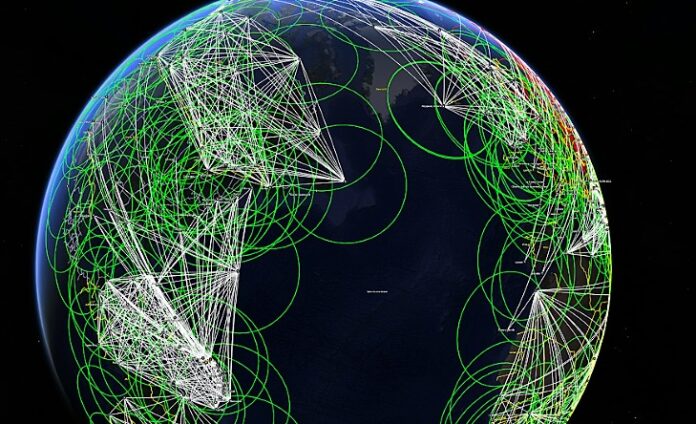
Should SpaceX succeed with the Starship and other commercial space companies soon follow rockets may be a new means by which we ship payloads and cargo around the planet. The U.S. Department of Defense (DoD) sees this as a likely near-term development, as early as two years from now. It wants to encourage rocket use for critical supply missions, particularly in times of crises or conflicts.
The capabilities of this type of transportation could include sub-orbital and orbital point-to-point delivery. First on the agenda is material shipments. But where materials go, so can humans. One commercial operator, SpaceX, believes that the design of its Starship and its configurability has the potential to do material and human sub-orbital and orbital transportation. The company already has commercial partnership agreements with DoD but they do not cover this capability.
Soliciting Commercial Cargo Delivery From and Through Space
The latest development has the Defense Innovation Unit (DIU) of DoD soliciting proposals from rocket companies for solutions for point-to-point cargo delivery from and through space. Responses are due just before midnight on July 17, 2023.
DIU seeks scaleable, cost-effective solutions and initially is asking those who respond to address the following three types of missions:
- material payloads shipped from Earth to orbit,
- shipped from orbit to Earth,
- and shipped from one orbit to another in space.
Based on the initial successful acceptance of a commercial submission, DIU will request further refinements of concepts and then select prototypes for subsequent demonstration missions as a proof-of-concept.
Other DIU considerations include operators being able to:
- Increase the volume and mass of delivered payloads,
- Provide precision accuracy on point-to-point suborbital and orbital missions,
- Flexible onboard compartmentalization for different payloads,
- Autonomous capability,
- Minimization of orbital or suborbital debris,
- Provide quick turnaround from request to launch to point of delivery and back,
- Flexibly maneuver to make changes to destinations,
- Sustain a payload’s viability for long durations if a mission requires it,
- Support or augment rescue or disaster response missions.
The DIU will accept submissions from domestic and international commercial companies, not under sanction by the U.S. government and wants to be mission ready in two years.
Background to This Solicitation Request
DoD has established USTRANSCOM for coordinating its military missions around the planet. The current operational services cover air, sea and land transportation. If DIU’s solicitation succeeds in finding one or more commercial partners, USTRANSCOM will likely be the beneficiary adding space to its repertoire. But DIU’s remit request includes non-military uses which may lead to a civilian equivalent to USTRANSCOM arising shortly.
Last year I asked in an article this question: How close are we to rocket-delivered cargo? I went on to describe what might evolve into a global network of spaceports that would be similar to today’s airports. These spaceports would not require the same amount of land as airports. Their biggest needs would include areas to safely store fuel, maintenance hangars, and launch and landing facilities. With autonomy, there would be no need for a control tower or human operators. Only fueling and cargo loading would involve people, but even robots could do that. The rockets of this future would operate autonomously.
DIU is thinking along these lines and through USTRANSCOM has encouraged partnerships with SpaceX, RocketLab, Blue Origin, and other commercial space ventures to develop the capacity to move 80 tons of cargo anywhere on the planet in an hour. This would equal the capacity of the incumbent air transportation technology currently in use by the U.S. military, the C-17 Globemaster, of which there are 157 in service.








